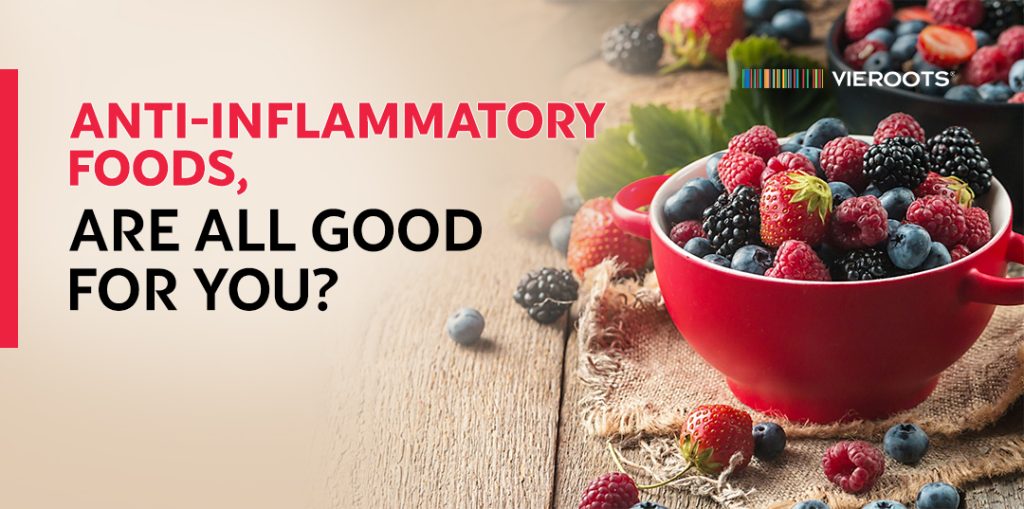Anti-Inflammatory Foods, Are All Good For You?

Does everyone benefit from anti-inflammatory foods? Not really. Anti-inflammatory foods can act differently for each person. For example, walnuts are good examples of an anti-inflammatory food that is rich in omega-6 PUFA. However, higher levels of PUFA can lead to higher cholesterol levels, especially if you have a genetic risk for it. As a result, such people should consume it in moderation.
To take another example, cruciferous vegetables like cabbage, cauliflower, and broccoli have anti-inflammatory benefits, but these vegetables tend to lower your thyroid levels, so a person with hypothyroidism should consume these vegetables in moderation only.
As there is no one-size-fits-all diet, anti-inflammatory foods may or may not benefit everyone in the same manner. Hence, a personalized diet is the only way to sustain wellness. A genetic predisposition test that analyses your major health conditions will tell you what diet you need and what suits you best. Know more about this at: (vieroots.com/eplimo)
What causes inflammation

There are many factors that cause inflammation. Regular intake of foods like refined carbohydrates, fried foods, soda, sweetened beverages, processed meat, unhealthy trans fats – margarine, shortening, and lard and excessive alcohol triggers inflammation in our body. External factors like cuts or injuries also lead to acute inflammation which however has localized short term treatments.
But chronic inflammation can have long-term and whole-body effects. To know more about chronic inflammation, its complications, and its solutions, read the book, ‘The Making of a Superhuman’ by Sajeev Nair, which has dedicated chapters on this most important topic. (books.viegyan.com)
To an extent, anti-inflammatory foods can be a means for managing chronic inflammation. Examples of such foods are,
Vegetables, fruits, healthy fats, foods high in Omega 3 Fatty acids, nuts, peppers, dark chocolate, spices (turmeric, fenugreek, cinnamon), green tea, etc.

However, nutritional absorption from dietary sources depends on the quality and quantity of such foods that we consume on a daily basis. Deficits in this regard can be managed through proper supplements. Krill Oil is a highly advisable supplement for a person working on reducing systemic and chronic inflammation in the body. (vieroots.com/products/detail/krill-oil)




very rich information..
especially i am experiencing same things…as my eplimo report suggests…Thyroid Stimulation can be controlled by consuming cabbage ,cauliflower in moderation. really Krill oil is best as I experienced it…